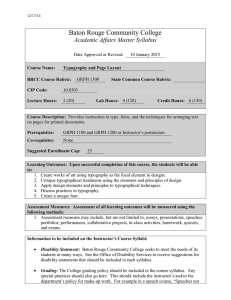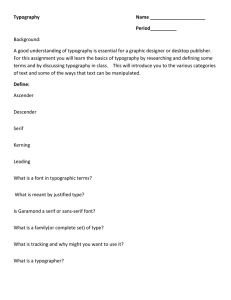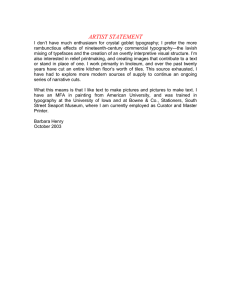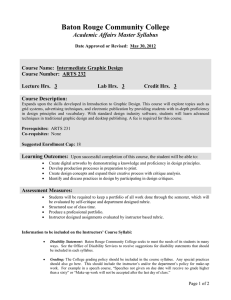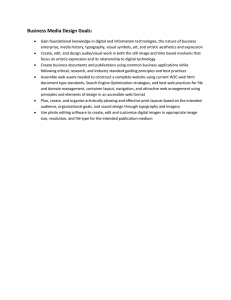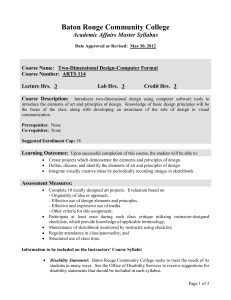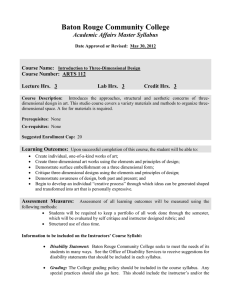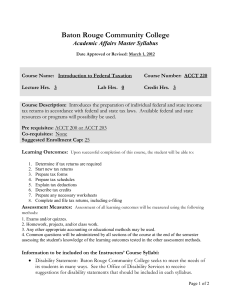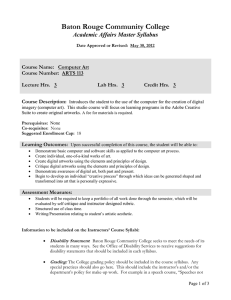Baton Rouge Community College Academic Affairs Master Syllabus
advertisement
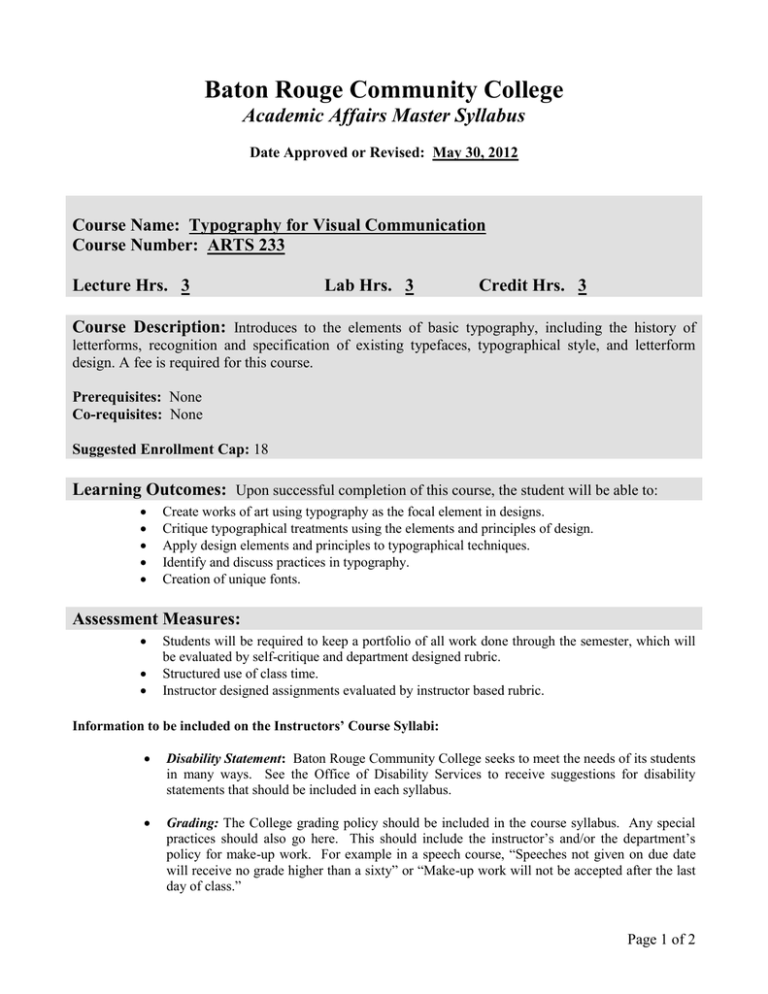
Baton Rouge Community College Academic Affairs Master Syllabus Date Approved or Revised: May 30, 2012 Course Name: Typography for Visual Communication Course Number: ARTS 233 Lecture Hrs. 3 Lab Hrs. 3 Credit Hrs. 3 Course Description: Introduces to the elements of basic typography, including the history of letterforms, recognition and specification of existing typefaces, typographical style, and letterform design. A fee is required for this course. Prerequisites: None Co-requisites: None Suggested Enrollment Cap: 18 Learning Outcomes: Upon successful completion of this course, the student will be able to: Create works of art using typography as the focal element in designs. Critique typographical treatments using the elements and principles of design. Apply design elements and principles to typographical techniques. Identify and discuss practices in typography. Creation of unique fonts. Assessment Measures: Students will be required to keep a portfolio of all work done through the semester, which will be evaluated by self-critique and department designed rubric. Structured use of class time. Instructor designed assignments evaluated by instructor based rubric. Information to be included on the Instructors’ Course Syllabi: Disability Statement: Baton Rouge Community College seeks to meet the needs of its students in many ways. See the Office of Disability Services to receive suggestions for disability statements that should be included in each syllabus. Grading: The College grading policy should be included in the course syllabus. Any special practices should also go here. This should include the instructor’s and/or the department’s policy for make-up work. For example in a speech course, “Speeches not given on due date will receive no grade higher than a sixty” or “Make-up work will not be accepted after the last day of class.” Page 1 of 2 Attendance Policy: Include the overall attendance policy of the college. Instructors may want to add additional information in individual syllabi to meet the needs of their courses. General Policies: Instructors’ policy on the use of things such as beepers and cell phones and/or hand held programmable calculators should be covered in this section. Cheating and Plagiarism: This must be included in all syllabi and should include the penalties for incidents in a given class. Students should have a clear idea of what constitutes cheating in a given course. Safety Concerns: In some programs this may be a major issue. For example, “No student will be allowed in the safety lab without safety glasses.” General statements such as, “Items that may be harmful to one’s self or others should not be brought to class.” Library/ Learning Resources: Since the development of the total person is part of our mission, assignments in the library and/or the Learning Resources Center should be included to assist students in enhancing skills and in using resources. Students should be encouraged to use the library for reading enjoyment as part of lifelong learning. Expanded Course Outline: I. Letter-forming a. Typeface Development b. Outlining II. Type Placement a. Font size b. Leading c. Kerning III. Type Management a. Adobe Font Manager b. Font Book and Suitcase IV. Type Variation a. Bold b. Serifs and non-serifs c. Condensed V. Typography as Form a. Positive and negative space b. Terminals VI. Dynamic Typography a. Typographic Vernacular b. Kinetic Typography Page 2 of 2
